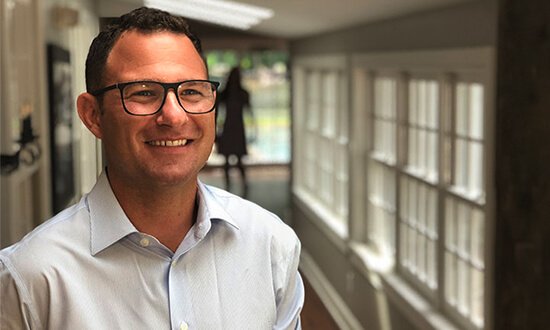Exploring Retail Real Estate_ Insights from Lawrence T. Maxwell and Florida’s Commercial Real -1
Retail real estate continues to evolve as consumer habits shift and businesses adapt to new challenges and opportunities. A significant player in understanding these dynamics is Lawrence T. Maxwell, a renowned expert in the field. His insights, coupled with the growing prominence of Florida’s commercial real estate market, provide a comprehensive view of the industry’s current and future trends.
The State of Retail Real Estate
Retail real estate refers to properties designed for businesses that sell goods and services directly to consumers. This includes shopping malls, standalone retail stores, and strip centers. Over the past few years, the industry has undergone transformative changes driven by the rise of e-commerce, shifting consumer expectations, and the effects of the global pandemic.
Traditional brick-and-mortar stores face increased pressure to integrate digital technologies to offer seamless shopping experiences. Yet, despite challenges, retail real estate remains a vital component of the broader commercial real estate landscape, especially in states like Florida, where population growth and tourism fuel demand.
Lawrence T. Maxwell: A Leader in Retail Real Estate
Lawrence T Maxwell has established himself as a thought leader and innovator in retail real estate. His expertise lies in identifying emerging trends, optimizing retail spaces, and guiding investments that align with market demands. Maxwell emphasizes the importance of location, adaptability, and innovation in the retail real estate sector.
According to Maxwell, retail properties must cater to the modern consumer by blending physical and digital experiences. He advocates for the strategic use of mixed-use developments, where retail spaces coexist with residential, office, and recreational areas. This model not only drives foot traffic but also creates vibrant communities.
Florida’s Flourishing Commercial Real Estate Market
Florida commercial real estate is a prime market, including retail spaces. The state’s favorable business climate, coupled with its growing population and robust tourism industry, makes it a hotspot for real estate investors and developers. Key cities like Miami, Orlando, and Tampa stand out for their thriving retail corridors and mixed-use developments.
1. Population Growth and Tourism
Florida’s consistent population growth has significantly boosted retail demand. With over 22 million residents and a steady influx of tourists, the need for retail services is ever-expanding. Shopping centers, outlet malls, and boutique retail stores in popular destinations like Miami Beach and Orlando attract millions of visitors annually.
2. Investment Opportunities
Florida offers attractive opportunities for retail real estate investors. Lawrence T. Maxwell highlights that the state’s low taxes, pro-business policies, and strategic location make it an ideal environment for growth. Retailers looking to expand their footprints often target Florida for its diverse customer base and economic stability.
3. The Rise of Experiential Retail
In Florida, experiential retail is reshaping the way businesses engage with customers. Shopping centers now incorporate entertainment venues, fine dining, and cultural attractions to draw visitors. The Miami Design District is a prime example, blending luxury retail with art installations and culinary experiences. Maxwell believes this trend is crucial for the future of retail real estate nationwide.
Key Trends Shaping the Market
Several trends are influencing the retail real estate market, particularly in Florida:
1. Omni-Channel Integration
Retailers are increasingly merging online and offline channels. Stores in Florida, for instance, offer services like in-store pickups for online orders, enhancing convenience for customers.
2. Mixed-Use Developments
Mixed-use properties are gaining traction, especially in urban centers. These developments combine retail with residential and office spaces, creating all-inclusive environments.
3. Sustainability and Resilience
As climate change poses challenges, Florida developers focus on sustainable building practices and resilient designs to withstand extreme weather conditions. This approach not only safeguards investments but also aligns with consumer values.
Challenges in the Retail Sector
Despite its growth potential, retail real estate faces challenges. Rising interest rates and inflation affect development costs and consumer spending. Additionally, competition from e-commerce requires physical retailers to innovate continually. Maxwell notes that those who can adapt to these changes will thrive in the long term.
Conclusion
Retail real estate remains a dynamic and integral part of the commercial real estate market. Lawrence T. Maxwell’s insights highlight the importance of innovation, strategic investments, and adaptability in navigating this complex landscape. In Florida, the sector benefits from favorable demographics, economic growth, and emerging trends like experiential retail and mixed-use developments.
As the industry evolves, retail real estate in Florida serves as a model for other regions, blending tradition with innovation to meet the needs of modern consumers. Investors, developers, and business owners should take note of this thriving market and the expertise of leaders like Lawrence T. Maxwell to unlock its full potential.

